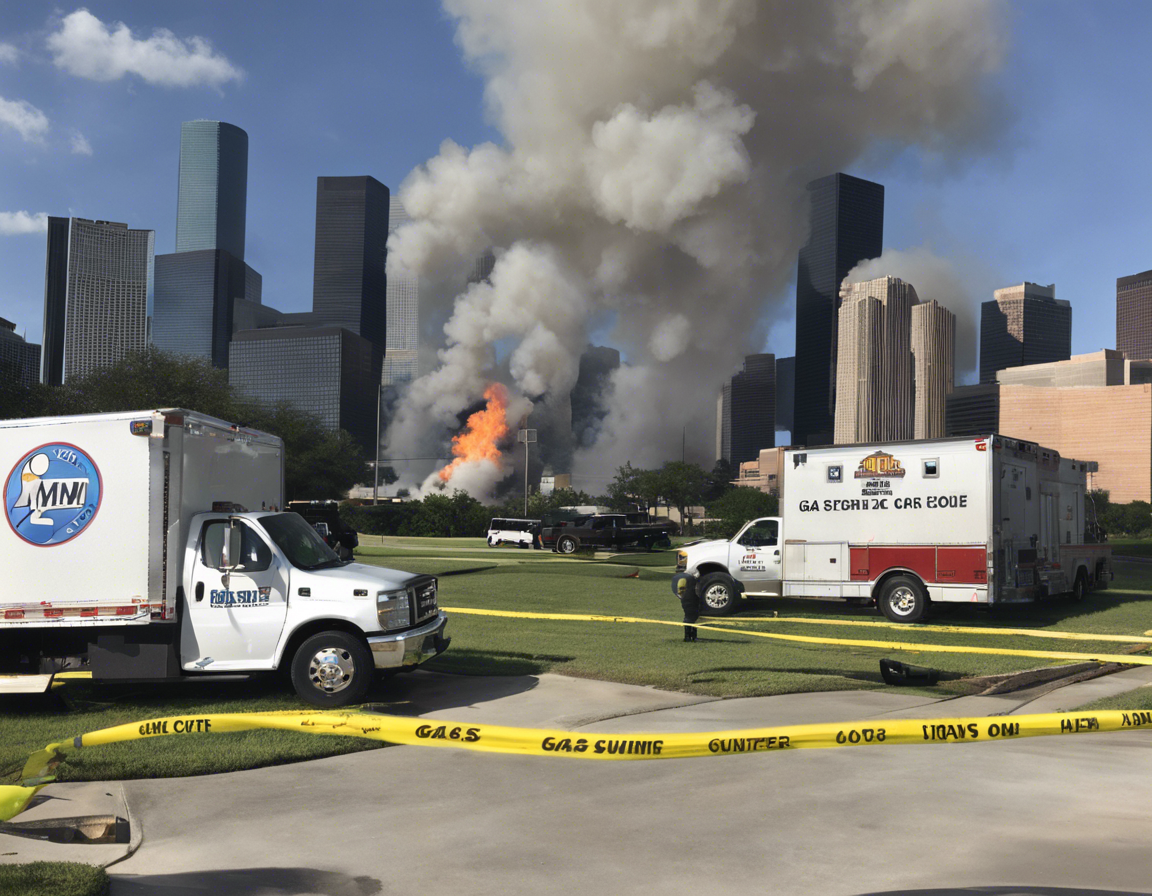Update: Gas Leak Reported in Houston Today

In the world of oil and gas production, gas leaks are unfortunately a common occurrence that can have serious consequences if not addressed promptly and effectively. These incidents can pose significant safety risks to workers and nearby residents, as well as lead to environmental damage.
Today, a gas leak was reported in Houston, sparking concerns among the local community and authorities. When such incidents happen, quick and coordinated responses are crucial to minimizing the impact and ensuring the safety of all individuals in the vicinity.
Understanding Gas Leaks
Gas leaks occur when natural gas, which is primarily composed of methane, escapes from pipelines, valves, compressors, or other equipment used in the extraction and transportation of gas. The most common causes of gas leaks include equipment malfunction, corrosion of pipelines, human error, and natural disasters.
Response and Mitigation
In the event of a gas leak, it is essential to follow a well-defined response and mitigation plan to contain the leak and prevent further escalation. Immediate actions may include:
- Evacuating the area to ensure the safety of individuals
- Alerting emergency services and the relevant authorities
- Shutting off the source of the leak, if possible
- Ventilating the area to disperse the gas
- Conducting a thorough inspection to identify the cause of the leak
Preventive Measures
Preventing gas leaks is the most effective way to avoid the associated risks and consequences. Regular maintenance and inspection of equipment, implementing safety protocols, and utilizing advanced leak detection technologies are some of the key preventive measures that can help minimize the likelihood of leaks occurring.
Environmental Impact
In addition to the immediate safety concerns, gas leaks can also have a significant environmental impact. Methane, the primary component of natural gas, is a potent greenhouse gas that contributes to climate change when released into the atmosphere. Containing and repairing gas leaks promptly is therefore essential to reduce the environmental footprint of the oil and gas industry.
FAQs
1. What should I do if I suspect a gas leak in my area?
If you suspect a gas leak, it is essential to evacuate the area immediately and contact the relevant authorities, such as the fire department or gas company.
2. How can I detect a gas leak in my home?
Common signs of a gas leak in a residential setting include a rotten egg-like odor, hissing sounds near gas appliances, and dead or dying vegetation near gas lines.
3. Are gas leaks common in the oil and gas industry?
Gas leaks are a known risk in the oil and gas industry due to the extensive network of pipelines and equipment used in the extraction and transportation of gas.
4. What are the health risks associated with gas leaks?
Exposure to natural gas can cause symptoms such as headaches, dizziness, nausea, and difficulty breathing. In severe cases, it can lead to asphyxiation or explosions.
5. How are gas leaks repaired?
Gas leaks are typically repaired by trained technicians who locate the source of the leak, isolate the affected area, and replace or repair the damaged equipment or pipeline.
In conclusion, gas leaks are a serious concern in the oil and gas industry, requiring proactive measures to prevent, detect, and respond to such incidents effectively. By prioritizing safety, environmental stewardship, and regulatory compliance, companies can mitigate the risks associated with gas leaks and ensure the well-being of their workers and the communities they operate in.
